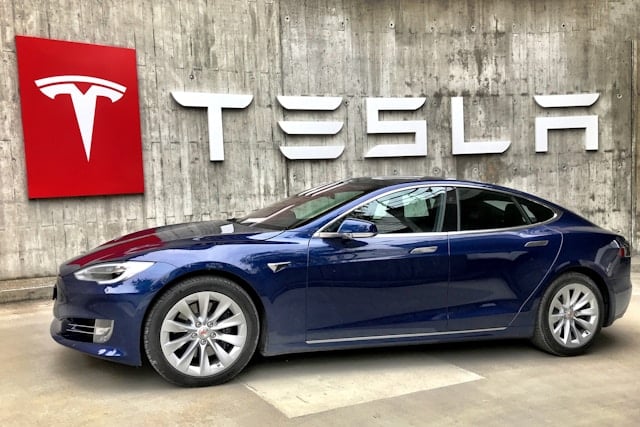Tesla, the pioneering electric vehicle (EV) and clean energy company headed by Elon Musk, continues to capture the attention of investors and technology enthusiasts alike in 2024. Known for its innovation in the EV market, autonomous driving technologies, and energy solutions, Tesla’s market capitalization (or market cap) is a reflection of its value in the stock market and its status as a leader in the global automotive and tech industries. In this article, we’ll take a look at Tesla’s market cap in 2024, what factors influence it, and how it positions Tesla among the world’s most valuable companies.
What Is Tesla’s Market Cap?
Market capitalization, or market cap, is a company’s total value as determined by the stock market. It’s calculated by multiplying the current stock price by the number of outstanding shares. Tesla’s market cap provides insight into how investors perceive its value based on its growth potential, revenues, and innovations in clean energy and automotive technology.
For example, if Tesla’s stock price is around $250 per share in 2024, and the company has approximately 3.5 billion outstanding shares, its market cap would be around $875 billion. While this is an estimate, it gives a clear picture of Tesla’s standing in the global market.
Tesla’s Market Cap In 2024
As of October 2024, Tesla’s market cap remains in the top tier of global companies, often hovering around $700 billion and will continuously fluctuate depending on stock market movement and investor sentiment. Tesla’s valuation is driven by its continued dominance in electric vehicles, its expansion into energy solutions, and its advancements in autonomous driving technology.
While Tesla’s market cap peaked above $1 trillion in previous years, it remains one of the most valuable automakers in the world, outpacing traditional automotive giants like Toyota, Volkswagen, and General Motors. Tesla’s influence extends beyond cars—it’s a tech and energy company at heart, and its market cap reflects this dual identity.
Factors Influencing Tesla’s Market Cap In 2024
Tesla’s market cap is influenced by several key factors that shape its position in the market:
Electric Vehicle Dominance: Tesla continues to lead the EV market globally, with its popular models like the Model 3, Model Y, and the upcoming Cybertruck. At this time, Tesla is commanding 55% of the US EV market – though it’s worth noting that this is down from 2022’s 65.4% and 2020’s 79.4%. Still, Tesla’s ability to scale production, expand into new markets, and maintain a technological edge over competitors like Rivian, Lucid Motors, and traditional automakers heavily influences its stock price and market cap.
Energy Solutions Expansion: Beyond electric vehicles, Tesla’s solar energy products and battery storage solutions (such as the Powerwall) play a growing role in the company’s business. As the world shifts towards sustainable energy, Tesla’s investments in energy storage and solar technology contribute to its long-term growth prospects.
Autonomous Driving Technology: Tesla’s Full Self-Driving (FSD) technology remains a major point of excitement and controversy. Although full autonomy is not yet a reality, Tesla’s advancements in this area continue to attract investors interested in the future of autonomous vehicles, giving Tesla a technological edge that is factored into its market valuation.
Global Expansion: Tesla’s factories, or “gigafactories,” around the world—in locations like Texas, Germany, and China—are instrumental in scaling production and reaching new markets. These factories help Tesla meet global demand and lower production costs, which supports stock performance.
Economic Conditions and Inflation: Tesla’s net worth, or rather its market cap, is also affected by broader economic trends, including inflation, interest rates, and consumer spending. In times of economic uncertainty, Tesla’s stock can be volatile as it relies heavily on investor sentiment in the tech sector.
Competition and Regulation: While Tesla is a leader in the EV market, it faces increasing competition from both legacy automakers and new startups. Additionally, regulatory changes in the U.S., Europe, and China regarding environmental policies, subsidies, and emissions standards could either help or hinder Tesla’s growth.
Why Tesla’s Net Worth (Market Cap) Matters
Tesla’s market cap is significant not only because it places the company among the top global businesses but also because it reflects Tesla’s role in shaping the future of transportation and energy. Investors and market analysts watch Tesla’s valuation closely as a measure of the company’s potential to revolutionize industries.
A high market cap provides Tesla with the financial flexibility to invest in new technologies, expand production capacity, and remain competitive. It also influences how Tesla is perceived by the public and competitors—solidifying its position as a tech company that happens to make cars, rather than just a traditional automaker.
Tesla’s Future Beyond 2024
As of 2024, Tesla’s market cap continues to be a vital indicator of its influence and potential in the automotive and tech industries. With ongoing innovations in electric vehicles, clean energy solutions, and autonomous driving technology, Tesla remains one of the most valuable companies in the world. While market conditions and competition will always be factors, Tesla’s commitment to sustainability and technological advancement positions it as a leader for years to come.





